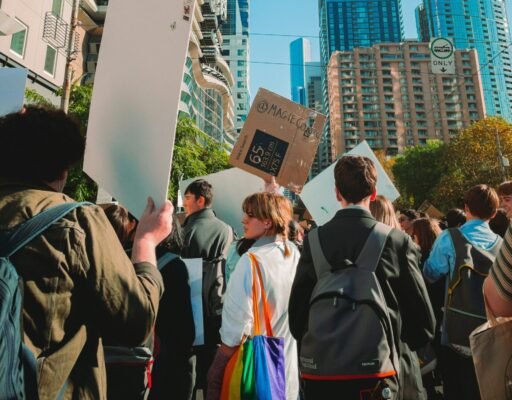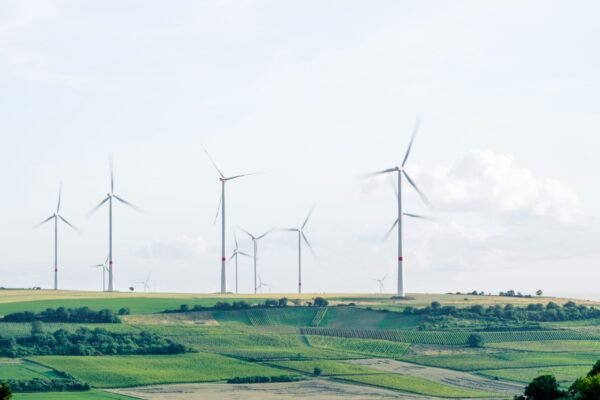
Introduction to Climate Activism and the Importance of Diversity
Climate activism has become an imperative force in addressing the global climate crisis, with young activists at the forefront of this movement. These young climate warriors are not only raising awareness but also driving tangible change through advocacy, policy influence, and grassroots organizing. The urgency of the climate crisis necessitates a diverse array of voices to ensure that solutions are inclusive and equitable.
Diversity within the climate movement is not just beneficial; it is essential. Activists of color bring unique perspectives and experiences that are often shaped by their communities’ direct exposure to environmental injustices. For instance, communities of color frequently face the brunt of climate change impacts, such as air pollution, water contamination, and extreme weather events. These experiences provide valuable insights into the multifaceted nature of the climate crisis and highlight the need for inclusive strategies that address the root causes of environmental inequity.
However, young activists of color often encounter systemic barriers that can hinder their participation and visibility within the climate movement. These barriers include limited access to resources, underrepresentation in decision-making spaces, and the pervasive marginalization of their voices in mainstream environmental discourse. This systemic exclusion not only undermines the effectiveness of climate activism but also perpetuates existing social and environmental inequities.
To build a more inclusive and effective climate movement, it is crucial to amplify the voices of young activists of color. By elevating their stories and perspectives, we can foster a richer, more comprehensive understanding of the climate crisis and develop solutions that are just and equitable. Supporting these activists involves not only recognizing their contributions but also actively working to dismantle the barriers they face. In doing so, we can ensure that the climate movement is truly representative of all those affected by the climate crisis, and more capable of driving meaningful change.
Challenges Faced by Young Climate Activists of Color
Young climate activists of color face a myriad of challenges that can significantly hinder their ability to advocate effectively for environmental justice. One of the primary obstacles is socio-economic barriers. Many of these activists come from communities that are disproportionately affected by environmental degradation and lack the financial resources and institutional support to address these issues. This economic disparity often limits their access to essential tools, such as funding for projects, educational opportunities, and platforms to amplify their voices.
Racial discrimination further complicates the efforts of young climate activists of color. Systemic racism can manifest in various ways, from overt prejudice to subtle biases that undermine their credibility and influence. Such discrimination not only affects their personal experiences but also impacts their ability to build coalitions and garner support from broader audiences. The intersectionality of race and environmental activism often means that their contributions are marginalized or overlooked, further stifling their efforts.
Lack of representation in mainstream media is another significant hurdle. Media coverage tends to focus on predominantly white activists, sidelining the voices and stories of activists of color. This lack of visibility can result in a diminished influence and fewer opportunities to engage with a wider audience. Without adequate representation, the unique perspectives and solutions that these activists bring to the table are often ignored, hindering the overall progress of the climate movement.
Limited access to resources and platforms also poses a considerable challenge. Many young climate activists of color struggle to find spaces where they can share their experiences and advocate for change. This scarcity of opportunities can lead to feelings of isolation and frustration, making it more difficult for them to sustain their initiatives. The long-term impact of these challenges on the broader climate movement is profound, as it restricts the diversity of voices and ideas necessary for comprehensive and equitable environmental solutions.
Strategies to Amplify the Voices of Young Climate Activists of Color
To effectively amplify the voices of young climate activists of color, it is crucial to provide them with platforms to share their stories. Creating spaces in both traditional and digital media for these activists to speak about their experiences and perspectives can significantly raise awareness and foster greater understanding. Organizations can host webinars, panel discussions, and public forums that specifically highlight the work and insights of activists of color.
Another vital strategy is to support their initiatives through adequate funding and resources. Many young activists face financial barriers that hinder their ability to lead and sustain impactful projects. By offering grants, scholarships, and other financial support, organizations and allies can help alleviate these burdens, allowing activists to focus on their mission without the added stress of financial constraints. Additionally, providing access to resources such as training, materials, and information can empower young activists to enhance their skills and broaden their reach.
Leveraging social media is another powerful method to increase visibility for young climate activists of color. Social media platforms offer an extensive reach and can help amplify their voices to a global audience. Allies can support by sharing posts, engaging with content, and using their own platforms to highlight the work of these activists. Utilizing hashtags and participating in online campaigns can also help draw attention to their causes and attract wider support.
Fostering mentorship and networking opportunities is essential for the growth and development of young climate activists. Establishing mentorship programs that connect experienced activists and professionals with emerging leaders can provide invaluable guidance, support, and inspiration. Networking events and collaborative projects can also help activists build meaningful relationships and share knowledge, further strengthening the climate activism movement.
Allies and organizations play a crucial role in promoting inclusivity within the climate activism sphere. By actively seeking out and supporting activists of color, they can ensure that diverse voices are heard and respected. This includes challenging any exclusionary practices within their own organizations and advocating for policies that promote equity and inclusion. Through these combined efforts, the voices of young climate activists of color can be effectively amplified, driving forward positive change and fostering a more inclusive and impactful climate movement.
10 Influential Young Climate Activists of Color to Follow
In the realm of climate activism, young leaders of color are making significant strides, bringing unique perspectives and essential voices to the forefront. Here, we present a list of 10 influential young climate activists of color whose work is pivotal in addressing the climate crisis. By following and supporting these remarkable individuals, you can stay informed and contribute to meaningful change.
1. Vanessa Nakate
Vanessa Nakate is a Ugandan climate activist and founder of the Rise Up Movement. She is passionate about the intersection of climate change and social justice, particularly in Africa. Vanessa’s work emphasizes the disproportionate impact of climate change on African communities. Follow her on Twitter: @vanessa_vash.
2. Xiye Bastida
Xiye Bastida is an Indigenous Mexican climate activist and member of the Otomi-Toltec Nation. She co-founded the Re-Earth Initiative and is known for her advocacy for Indigenous rights and climate justice. Follow her on Instagram: @xiyebeara.
3. Isra Hirsi
Isra Hirsi, co-founder of the U.S. Youth Climate Strike, is a prominent advocate for intersectional environmentalism. Her work focuses on the disproportionate effects of climate change on communities of color. Follow her on Twitter: @israhirsi.
4. Jerome Foster II
Jerome Foster II is a young American climate activist and executive director of OneMillionOfUs. His advocacy centers on youth engagement and political action to combat climate change. Follow him on Instagram: @jeromefosterii.
5. Autumn Peltier
Autumn Peltier is an Anishinaabe Indigenous water rights advocate. She has been a vocal activist for clean water and Indigenous rights since she was 8 years old. Follow her on Twitter: @autumn.peltier.
6. Leah Thomas
Leah Thomas, also known as Green Girl Leah, is an environmental activist and founder of Intersectional Environmentalist. She advocates for the inclusion of social justice in environmentalism. Follow her on Instagram: @greengirlleah.
7. Helena Gualinga
Helena Gualinga is an Indigenous climate activist from the Ecuadorian Amazon. She focuses on the rights of Indigenous peoples and the protection of the Amazon rainforest. Follow her on Instagram: @helenagualinga.
8. Zanagee Artis
Zanagee Artis is a co-founder of Zero Hour, an activist organization that addresses the climate crisis through advocacy and education. He focuses on policy change and youth empowerment. Follow him on Twitter: @zanageeartis.
9. Elizabeth Wathuti
Elizabeth Wathuti is a Kenyan climate activist and founder of the Green Generation Initiative. She advocates for environmental conservation and climate education in Africa. Follow her on Twitter: @lizwathuti.
10. Mari Copeny
Mari Copeny, known as Little Miss Flint, is a young American activist fighting for clean water in Flint, Michigan. Her work highlights the impact of environmental racism and advocates for clean water access. Follow her on Twitter: @LittleMissFlint.
Engaging with and supporting these young climate activists of color is crucial for amplifying their voices and furthering the climate justice movement. Their work not only addresses environmental issues but also intersects with social justice, making their contributions invaluable. Follow them on social media to stay updated on their efforts and learn how you can support their missions.



